Secures Over $700M in Funding, Autonomous Driving Company Nuro's Valuation Drops by Over 30%
![]() 04/11 2025
04/11 2025
![]() 740
740
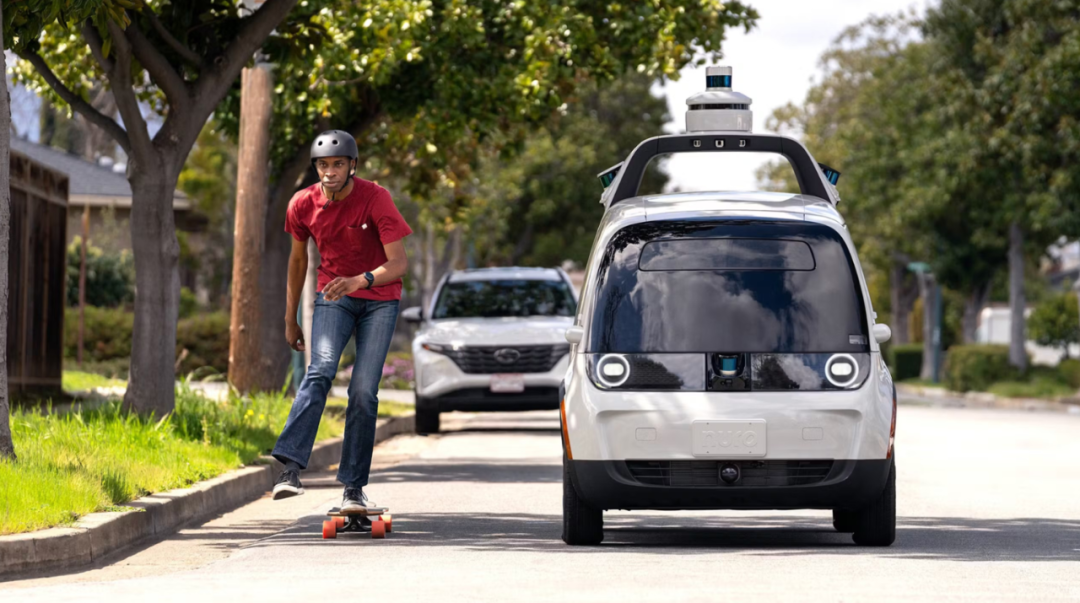
Author | Zhang Lianyi
Nuro has secured another round of funding, but its valuation has declined compared to previous rounds.
On April 9, local time, autonomous driving technology startup Nuro announced that after raising $106 million (approximately RMB 775 million) in its latest funding round, its valuation reached $6 billion. This round of funding was led by T. Rowe Price Associates, Fidelity Management & Research Company, Tiger Global Management, Greylock Partners, and XN, among others.
It has been over three years since Nuro's last funding round, which coincided with the peak of the venture capital boom. At that time, Nuro's valuation reached $8.6 billion. The current valuation represents a decline of over 30% from that high.
In the second half of last year, Nuro stated that it would expand its business model beyond unmanned delivery to include autonomous driving technologies, such as self-driving taxis and personally owned autonomous vehicles.
With the new round of funding in place, Nuro is ready to embark on a new chapter.
01
Has Raised Over $2.2 Billion in Funding
Founded in 2016, both founders of Nuro have backgrounds at Google.
One is Zhu Jiajun, the former chief software engineer of Google's self-driving car team. He joined Google in 2005 after an internship at Intel and later rose to become the chief software engineer of Google's autonomous driving team.
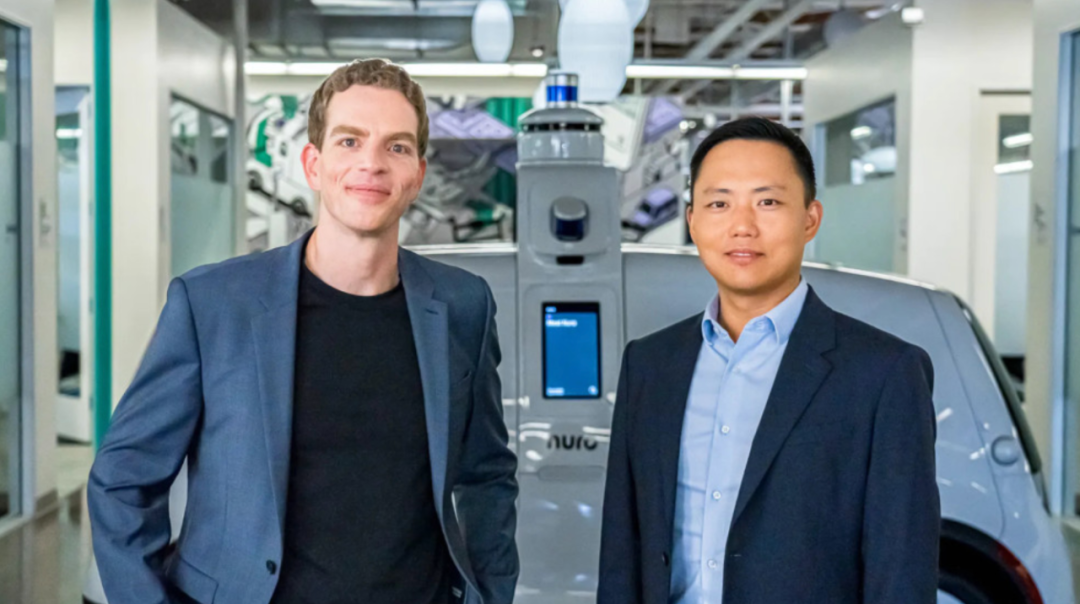
Nuro's Founders
The other is Dave Ferguson, who was once the head of computer vision and machine learning and chief engineer at Google.
With a strong entrepreneurial team background, Nuro has attracted significant attention from the capital market since its inception, quickly securing multiple rounds of funding totaling over $2 billion, catapulting it to unicorn status in the U.S. autonomous driving industry.
Nuro's investor lineup is nothing short of an "all-star" cast, including top venture capital firms as well as strategic investors such as Toyota, Woven Capital (a subsidiary of Toyota), and Chipotle. This combination of capital not only provides financial support but also brings valuable industry resources to Nuro.
In January 2018, Nuro completed a $92 million Series A funding round, with investors including Gaorong Capital, Ding Lei (founder of NetEase), ZhenFund, and Greylock Partners.
Since then, Nuro has secured significant funding for three consecutive years.
In February 2019, Nuro announced the completion of a $940 million funding round from the SoftBank Vision Fund.
In November 2020, Nuro secured a $500 million Series C funding round led by T. Rowe Price Associates, with participation from Fidelity Management & Research Company, LLC., major Tesla institutional shareholder Baillie Gifford, SoftBank Vision Fund I, and Greylock, among others.
In December 2021, Nuro completed a $600 million Series D funding round led by Tiger Global Management, with participation from Baillie Gifford, Fidelity Management & Research Company, LLC., Gaorong Capital, Google, Kroger, SoftBank Vision Fund I, funds under T. Rowe Price Associates, Inc., Toyota's Woven Capital, and other existing shareholders.
At this point, Nuro's valuation reached $8.6 billion.
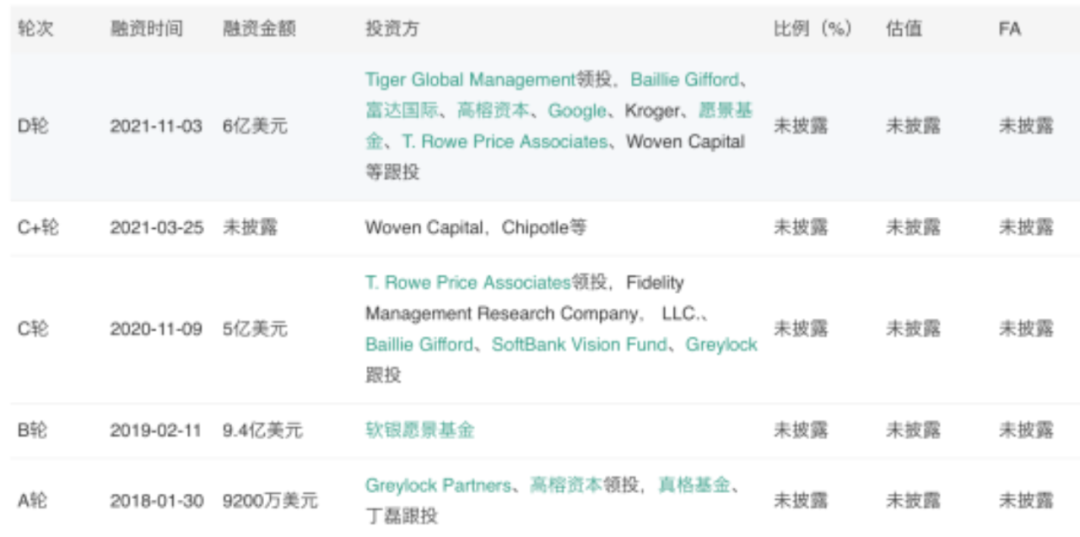
Nuro's Previous Funding Rounds
However, for a long time thereafter, there was no news of new funding for Nuro.
It wasn't until April of this year, more than three years later, that Nuro finally announced the securing of a new round of $106 million in funding, supported once again by many "old acquaintances."
Although the total funding amount has increased from $2.1 billion to $2.2 billion, Nuro's valuation has declined, falling from $8.6 billion to $6 billion.
However, Dave Ferguson is quite satisfied with the current valuation. He said, "Our last funding round was at the end of 2021, when the market was at its peak. We are very satisfied with this current valuation and believe it will give us confidence that our new market strategy will succeed."
In the future, Nuro will use the funds from this latest round of funding to enhance its autonomous driving technology and advance commercial collaborations.
02
Consecutive Launches of Three Generations of Vehicles
While securing a new round of funding, Nuro's strategic focus is also gradually shifting.
In its early days, Nuro focused on last-mile unmanned delivery and launched a series of products.
In January 2018, Nuro unveiled its first-generation unmanned delivery vehicle, R1, which featured a completely cabin-less design that was a breath of fresh air. The vehicle was only half the width of a regular car, had a top speed of 25 miles per hour (about 40 kilometers per hour), a cargo space equivalent to 3-4 shopping bags, and a maximum load capacity of 113 kilograms. This generation of products mainly validated the feasibility of unmanned delivery vehicles.
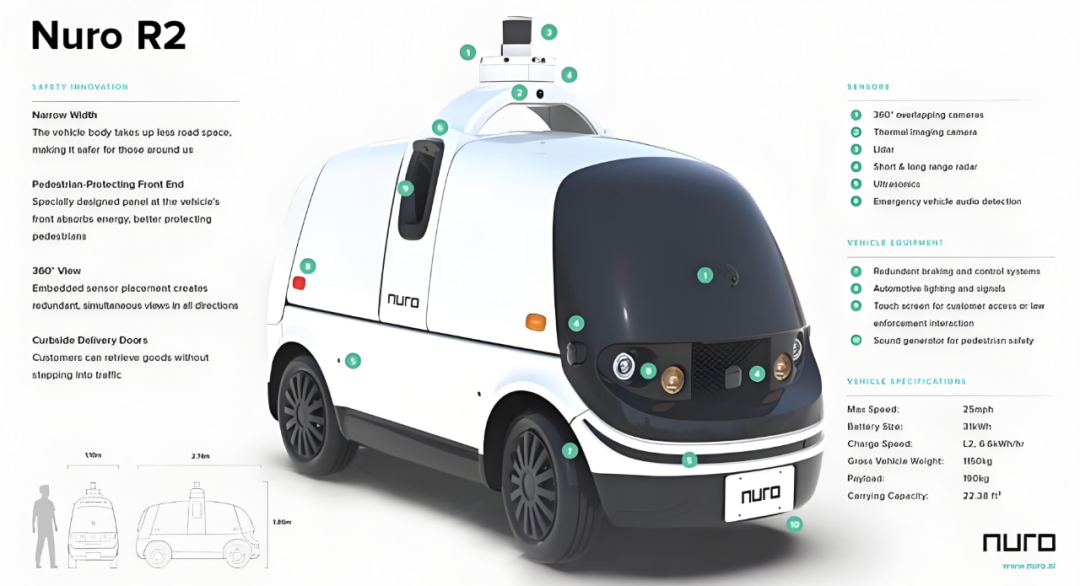
Soon, in February 2020, Nuro released its second-generation unmanned delivery vehicle, R2, which looked very similar to the previous generation, R1, with a speed limit of 25 miles per hour and no steering wheel, pedals, or space for a human driver.
However, compared to R1, R2 was more ready for commercial operation.
Instead of customizing each vehicle like R1, Nuro collaborated with automaker Roush on the design.
It had a 65% larger cargo capacity than R1, capable of holding 20 shopping bags; the compartment featured temperature control for better food preservation; the external touchscreen was also larger; it used a custom battery solution that doubled the battery capacity to ensure all-day operation; the vehicle weighed more, reaching 1.15 tons; and it had no side mirrors.
The bigger difference was that R2 received a special exemption from the U.S. federal government. This meant that Nuro could manufacture and test unmanned delivery vehicles that did not meet federal motor vehicle safety standards (FMVSS).
Generally speaking, according to FMVSS regulations, vehicles sold in the U.S. must have basic controls, such as steering wheels, pedals, and rearview mirrors. If a new vehicle does not meet the standards, the manufacturer can apply for an exemption.
However, before Nuro, there had been no precedent for such an exemption for an autonomous driving company.
Meanwhile, Nuro was also the first company to test fully driverless vehicles on public roads in California under the permit of the California Department of Motor Vehicles (DMV), with neither drivers nor passengers.
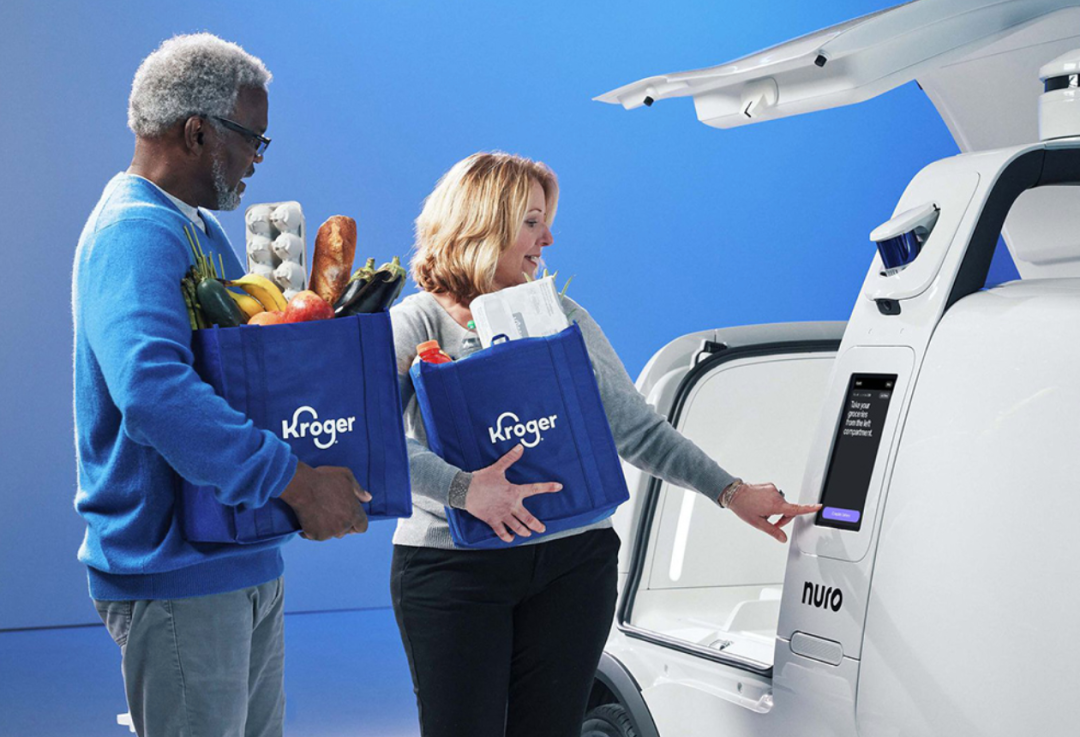
Benefiting from this, Nuro accelerated its commercialization efforts and established partnerships with American pizza chain Domino's, supermarket chain Walmart, grocery chain Kroger, pharmacy chain CVS, and delivery company FedEx, among others. It quickly became a unicorn and the most valued player in the last-mile logistics sector.
Another two years passed. In January 2022, Nuro unveiled its third-generation unmanned delivery vehicle, jointly developed and designed with BYD.
According to plans, the new vehicle is expected to enter mass production in 2023, offering double the cargo capacity of the previous generation at half the cost, making it the main force in Nuro's commercial expansion.
In Dave Ferguson's view, "The third-generation autonomous delivery vehicle is a crucial step for Nuro towards mass production. Its design is entirely centered around commercial needs, not just a technological demonstration."
To this end, Nuro also underwent rapid expansion, doubling its team to 1,500 in two years.
Everything was in preparation for large-scale commercialization.
03
From Unmanned Delivery to Autonomous Driving
But reality dealt a heavy blow to Nuro.
In 2022, along with the global economic uncertainty, the autonomous driving industry also entered a winter.
Nuro, which had been struggling to turn a profit, faced a tight capital chain.
As a result, in November of that year, Nuro made the decision to lay off employees.
In an internal letter to employees, the company admitted that the rapid hiring over the past year had been a mistake and would lay off about 20% of its workforce.
At the same time, Nuro also slowed down its commercialization efforts and postponed the mass production of the third-generation unmanned delivery vehicle, abandoning its cooperation with BYD, sending the company into a trough.
An even bigger change came in 2024.
In September of that year, Nuro announced the expansion of its business model to include autonomous driving technologies, spanning from Level 2 to Level 4.
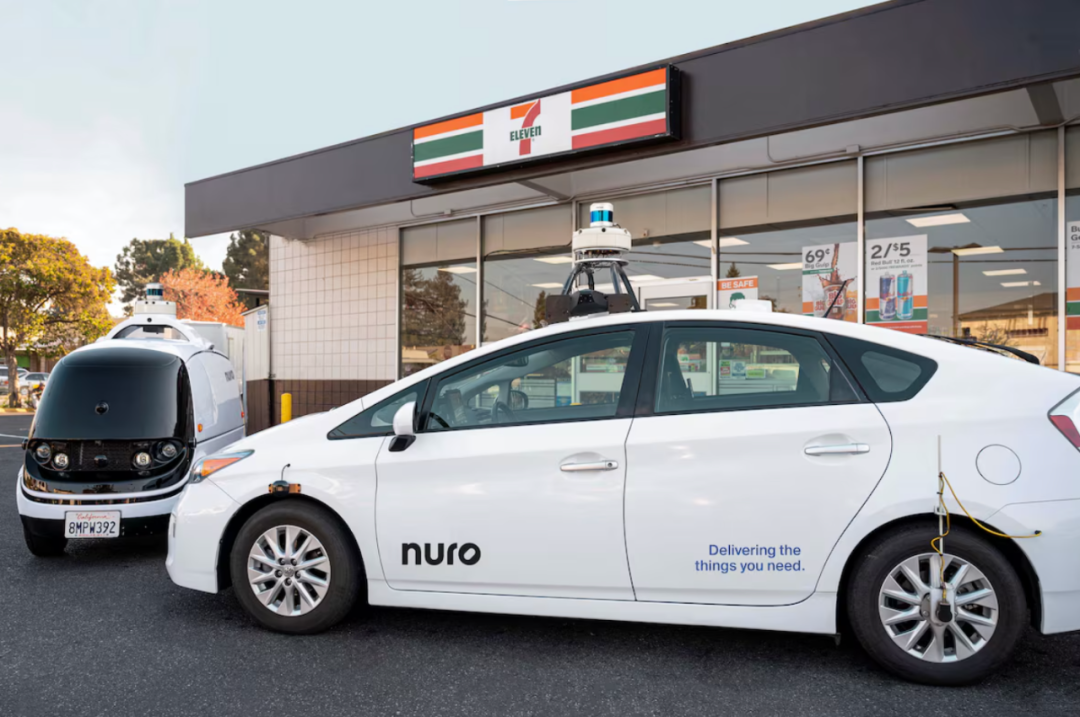
Andrew Clare, Nuro's Chief Technology Officer, cited two reasons for the adjustment in business model.
On the one hand, the company's autonomous driving technology has improved to the point where it can handle a wider range of tasks, not just delivery.
On the other hand, when the company was founded, no automotive company had seriously planned to manufacture Level 4 autonomous vehicles. If Nuro wanted to go down this path, it had to manufacture its own hardware, which was too demanding for its own needs. However, with the entry of more players, Nuro can now commercialize by providing technology.
As a result, Nuro launched its fourth-generation unmanned driving system, Nuro Driver.
Powered by NVIDIA's Thor chip and Arm's Neoverse technology, the Nuro Driver is developed by BYD for its powertrain and covers autonomous driving technologies from Level 2 to Level 4.
Since then, Nuro's business model has expanded from unmanned delivery to autonomous driving, with its official website now featuring more information on autonomous driving-related technologies.
Strategic transformation is clearly not an easy task to achieve, but the real money support from these "old acquaintances" may indicate a willingness to believe in Nuro once again.
Thus begins a new chapter.








